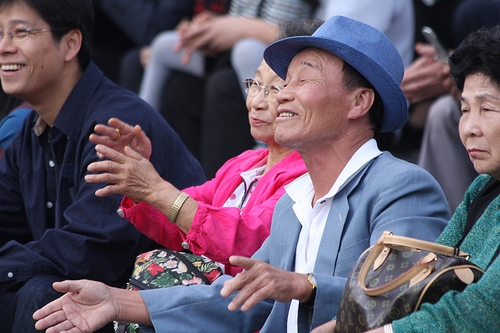
Korea's fastest aging population is a growth buster
Potential growth will decline to 2.5% by 2050 as the country faces a contracting working-age population beginning 2016.
Korea now holds the distinction of having the fastest aging population on the planet, according to a new RBS emerging markets report, and the demographic shift will have far-ranging impacts on growth, fiscal spending and prioritization, and private saving levels.
Here's more from RBS:
Korea has the fastest aging population on the planet and by 2016 its working-age population will contract. The impact on potential growth, a drop of 1.7 percentage points to 2.5% by 2050, is modest, not even considering a boost to female labour participation.
Evidence that Korea would follow Japan into deflation is sparse. Fiscal pressures will be manageable, as Korea has a small government sector and lean entitlement programs. The funding gap of the national pension scheme amounts to 18% of GDP, not much considering that government debt amounts to only 30% of GDP.
Public health spending would rise from 4% of GDP to 9% of GDP by 2050. It would still be the lowest health spending of OECD countries after Cyprus. Most importantly, Korea has ample scope to raise taxes and social security contributions, given its very low tax burden (raking 31 out of 38 countries).
While public dis-saving may be avoided, private saving will fall sharply as families look after their elders. The current account is projected to decline by 6.4 percentage points of GDP through 2050, starting in 2019. This should weigh on the won. It is unlikely that asset prices will fall as Koreans save less, since younger countries will make up for the shortfall in asset demand.
























 Advertise
Advertise






